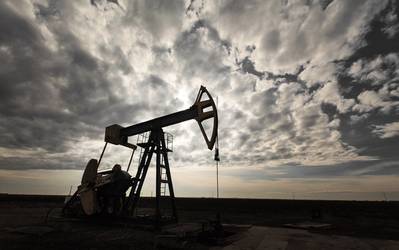U.S. drillers added oil rigs for an 11th week in a row in the best quarter for boosting the rig count since the second quarter of 2011, as a ten-month recovery gathers pace with energy companies boosting spending on new production.
Drillers added 10 oil rigs in the week to March 31, bringing the total count up to 662, the most since September 2015, energy services firm Baker Hughes Inc said on Friday.
During the same week a year ago, there were 362 active oil rigs.
The 137 rigs added in the first quarter is the biggest boost in a quarter since the drillers activated a record 152 rigs in the second quarter in 2011, according to Baker Hughes data going back to 1987.
This recent rig count increases have come despite a collapse in U.S. crude futures this month to levels seen when the Organization of the Petroleum Exporting Countries (OPEC) agreed to cut production on Nov. 30.
U.S. crude futures eased to around $50 a barrel on Friday, putting the contract on track for its worst quarter since 2015, as investors fret that growing U.S. supplies are undermining the OPEC-led cuts.
Since crude prices first topped $50 a barrel in May after recovering from 13-year lows in February 2016, drillers have added a total of 346 oil rigs in 40 of the past 44 weeks, the biggest recovery in rigs since a global oil glut crushed the market over two years starting in mid 2014.
Baker Hughes oil rig count plunged from a record 1,609 in October 2014 to a six-year low of 316 in May 2016 as U.S. crude collapsed from over $107 a barrel in June 2014 to near $26 in February 2016.
Analysts projected U.S. energy firms would boost spending on drilling and pump more oil and natural gas from shale fields in coming years with energy prices expected to climb.
Futures for the balance of 2017 were trading over $51 a barrel, while calendar 2018 was fetching almost $52 a barrel.
Analysts at Simmons & Co, energy specialists at U.S. investment bank Piper Jaffray, this week forecast the total oil and gas rig count would average 843 in 2017, 968 in 2018 and 1,079 in 2019. Most wells produce both oil and gas.
That compares with an average of 742 so far in 2017, 509 in 2016 and 978 in 2015, according to Baker Hughes data.
Analysts at U.S. financial services firm Cowen & Co said in a note this week that its capital expenditure tracking showed 57 exploration and production (E&P) companies planned to increase spending by an average of 50 percent in 2017 over 2016.
That expected spending increase in 2017 followed an estimated 48 percent decline in 2016 and a 34 percent decline in 2015, Cowen said according to the 64 E&P companies it tracks.
(Reporting by Scott DiSavino; Editing by Marguerita Choy)












